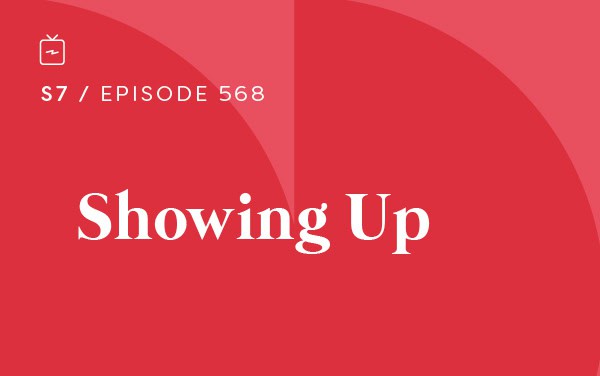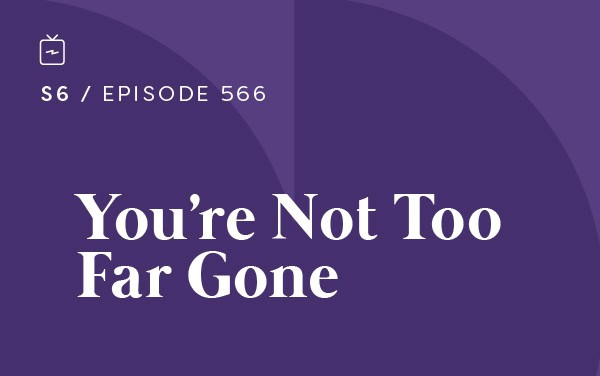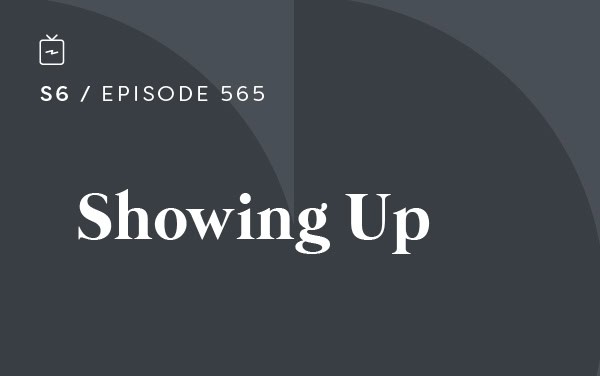
by Kris Oyen | Jan 12, 2026 | Podcast
Podcast: Play in new window | Download
Subscribe to the Recovery Elevator Podcast Apple Podcasts | | More
Today we have Sean. He is 33 years old and lives in Phoenix, AZ. He took his last drink on January 22, 2022.
This episode is brought to you by:
Café RE – THE social app for sober people
Better Help – 10% off of your first month #sponsored
There is one spot left on our sober travel trip to Costa Rica. This journey is scheduled for February 21st – 28th. Email info@recoveryelevator.com if you would like to join us.
Join us on January 10th for the start of our AF Ukelele Course. This course is sponsored by Kala brand ukelele and if you register, you get a code for 10% off an instrument.
[03:00] Thoughts from Paul:
“Want to change your relationship with alcohol?” is a common question asked in the recovery space.
When somebody says they want to change their relationship with something, it usually implies there’s a goal of improvement. Changing a relationship with exercise may look like hitting the gym more. Maybe changing a relationship with your mother-in-law means you’re going to try harder at Thanksgiving to keep your mouth shut. Or it’s like saying you want to change your relationship with a narcissistic ex who stole your credit card, crashed your car and told everyone at the party that you wet the bed in third grade.
Some relationships don’t need to change; they need to end. So, maybe we don’t want to moderate our relationship with a substance that literally erodes our livers. We don’t want to set boundaries with something that crosses every boundary we’ve ever set. And we certainly don’t want to work on things with a liquid that has never once worked on itself.
Paul shares that the only relationship change with alcohol that he’s interested in is the one where they are in no relationship at all.
[06:57] Paul introduces Sean:
Sean is married and they have an eight-year-old daughter together. For fun he enjoys fishing, going to concerts, playing music and being outside as much as he can.
Sean had his first drink when he was 17. He says every moment after that, he felt like he was trying to chase that feeling again. He recognizes now that he was drinking to escape a rough home life. The drinking didn’t become daily until his early 20’s when he began working at a bar.
Sean was drinking 20-25 drinks a day and excused it by the environment he was in. Sean though he was using alcohol to help his anxiety, but over time started realizing his drinking was causing it. Since Sean was able to work, provide for his family and help raise his daughter, he didn’t see the problem. Soon he needed to drink before work to avoid withdrawal symptoms and over time he was drinking throughout the day.
The drinking began to cause issues for Sean and depression started to set in. Sean was in denial that it was the alcohol causing it but soon realized that he was powerless over his drinking and that scared him. The thoughts that his family would be better off without him, and audible hallucinations were consuming his mind. He finally decided to try and taper his drinking in an effort to quit but struggled with it.
Sean eventually was able to quit cold turkey after tapering and says the first few nights were the worst. He googled his symptoms and found a YouTube video by Paul about Post-Acute Withdrawal Symptoms. This helped him recognize that this wouldn’t last forever and that his body was in the process of healing.
It took about six months for Sean to begin feeling better and he started to go to Celebrate Recovery and found community. He gained a lot of hope seeing others that had years of sobriety. Sean credits gratitude as being a big help to keep him out of anxiety and depression now. He allows himself to feel his emotions instead of letting them define him.
Sean says his spirituality and relationship with God is what has made this possible for him. He enjoys helping others trying to have a connection with God and/or sobriety.
Recovery Elevator
We took the elevator down
Let’s take the stairs back up.
We can do this.
RE on Instagram
Sobriety Tracker iTunes
RE YouTube

by Kris Oyen | Jan 5, 2026 | Podcast
Podcast: Play in new window | Download
Subscribe to the Recovery Elevator Podcast Apple Podcasts | | More
Today we have Sarah. She is 49 years old and lives in San Diego, CA. Sarah took her last drink on August 6th, 2025.
This episode is brought to you by:
Better Help – 10% off of your first month #sponsored
Pick up your copy of Paul’s newest book Dolce Vita. You can get it on Amazon, listen to it on Audible or order it at your favorite bookstore today.
Join us on January 10th for the start of our AF Ukelele Course. This course is sponsored by Kala brand ukelele and if you register, you get a code for 10% off an instrument.
[02:00] Thoughts from Paul:
This is the first podcast of the new year and maybe you are a new listener. Paul wants to cover some basics and let you know what we are about.
Recovery Elevator is about quitting drinking. The goal isn’t cutting back, moderation or putting the beast back in the cage. It’s full send on zero alcohol consumed.
Recovery Elevator is also about embracing that there is no right or wrong way to ditch the booze, just don’t do it alone. No explanation needed her, we get it. What you’ll find here and in Café RE is there is no judgment. We all know where you are and have been there ourselves.
Recovery Elevator is the podcast, courses, Dry January, sober travel, merch, Instagram and more.
Café RE is the non-profit alcohol-free community – it’s the social app for sober people. We’ve got 25+ chats each week, Accountability Partner pairings, in-house AA meetings, book club, movie club, etc.
[06:27] Paul introduces Sarah:
Sarah is a painter and lives in San Diego with her partner and two daughters, 17 and 19. For fun, she enjoys surfing with her partner, backpacking with her older daughter and loves living on the beach.
Sarah says she grew up in an idyllic childhood. Her parents drank but not to excess. She recalls that she was a worried child with a tendency towards overthinking and had a addictive personality to many things.
Drinking wasn’t part of her story while in school. She was on the cross-country team from seventh grade until she was a sophomore in college. After an injury took her out of the sport, she began to participate in parties more. She quickly recognized that drinking took away some insecurities and inhibitions and enjoyed that aspect but realized she couldn’t moderate. Sarah developed a “take it or leave it” attitude towards alcohol but developed an eating disorder. Food became the replacement for alcohol when it came to self-medicating.
After a divorce, Sarah made a new friend that was going through the same things. She confided in him about her eating disorder and he helped her find treatment for it. While in the process of recovering from the ED, she started using alcohol again and would replace meals with beer. Sarah began asking God, “why are we having me have another problem?” She knew she was meant for better things but was having a hard time stopping the addictions.
Sarah used prayer to try and find the help she was after. She began going to AA, listening to podcasts and working herself to try and gain the tools to decide the addiction wasn’t an option anymore. She was able to gain some traction but relapsed after several months of sobriety. In spite of being upset about being back at day one, Sarah learned to just keep showing up for herself and others and stopped beating herself up.
Sarah has removed food and alcohol as options for coping. When she needs to get away, she utilizes the beach and the ocean. She enjoys the studio space with her art to help her get out of her head.
Sarah O’Connor Art
Sarah’s Instagram
Recovery Elevator
You took the elevator down
We gotta take the stairs back up
We can do this.
Café RE
RE on Instagram
Sobriety Tracker iTunes
RE YouTube

by Kris Oyen | Dec 29, 2025 | Podcast
Podcast: Play in new window | Download
Subscribe to the Recovery Elevator Podcast Apple Podcasts | | More
Today we have Jenn. She is 52 years old, from Washington, DC and she took their last drink on September 3rd, 2023.
This episode is brought to you by:
Café RE – the social app for sober people
Join us for our Dry January course Restore at 8pm eastern time on January 1st. This is the first of 13 sessions throughout the month, and this course is all about accountability and connection.
[01:13] Thoughts from Paul:
Today Paul talks about the origin of the title to his new book Dolce Vita which will be released on January 1st.
What he has learned over the years in his own recovery and while interviewing hundreds of people on the RE podcast is that the addiction is trying to get us to the true Dolce Vita – the true good life. Of course, not the Dolce Vita at the bottom of a wine bottle because if you’re listening now, you’ve already realized that it doesn’t deliver.
The true Dolce Vita is seeing through the “I’ll be happy when…” trap. It is stepping away from the me-me-me voice inside the head and leading a life where you walk others home after you find your own footing. It is recognizing oneness in a world of duality.
Paul’s message before we enter the new year is yes, do the work, plan for the future. Put the bottle down but don’t ignore the timeless part of you that is trying to land more and more into the true Dolce Vita. You’re already there.
[06:51] Paul introduces Jenn:
Jenn is 52 and lives in the DC area with her two children. For work, Jenn is a civil engineer and for fun she enjoys traveling, camping, hiking, attending concerts and is a gourmet cook.
Jenn first drank in middle school and loved untouchable feeling she got from it. She never blacked out, but it helped her make friends and feel at ease. She was just drinking to have fun and that continued through high school and college. After graduation, Jenn moved to Richmond VA where there were bars on every corner.
Drinking became part of her routine until Jenn’s boss warned her that she could lose her job if she continued. She would begin to put boundaries on her drinking when anything would happen and says she soon painted herself into a corner where the only safe place to drink was at home.
Jenn got married and they moved to Philadelphia. Both times her wife was pregnant, Jenn chose not to drink in solidarity with them but would go right back after the kids were born. Jenn traveled a lot for work and being in a high-pressure job, drinking was a way for her to ease the stress.
It was during COVID that Jenn would drink alone in the basement often and realized how miserable she was. Her kids were scared of her, she was not living up to her potential and suicide felt like the only option.
While watching a classic movie about a transgender person, Jenn found herself having an existential crisis and didn’t know who she was anymore. This contributed to her drinking and created complications with her diverticulitis which required surgery. She had recently began taking Ativan in addition to her drinking to help with her stress and insomnia. After her mother died, she began to abuse the drug.
On Labor Day weekend in 2023, Jenn decided to quit the drug and had terrible withdrawals. She decided to check into detox for a week and while there realized that she needed to quit both the Ativan and the drinking. She started working the 12 steps and got a sponsor which also led to her going to gender counseling to help deal with her transition.
Life changed for Jenn when she began to live an authentic life. Her marriage didn’t survive, but she and her ex-wife are still great friends and coparents. A job change has allowed her to spend more time with family and her recovery community. She supplements her recovery with podcasts, books, exercise and counseling. Her higher power gets her outside of herself and she has the goal to help others by sharing her experience.
Recovery Elevator
It all starts from the inside out.
I love you guys.
We can do this.
RE on Instagram
Sobriety Tracker iTunes
RE YouTube

by Kris Oyen | Dec 22, 2025 | Podcast
Podcast: Play in new window | Download
Subscribe to the Recovery Elevator Podcast Apple Podcasts | | More
Today we have Kristine. She is 34 years old from Toronto Canada, and she took her last drink on May 19th, 2025.
This episode is brought to you by:
Café RE – the social app for sober people
Café RE is now a registered 501c3 nonprofit. Please visit the website or email info@recoveryelevator.com if you are interested in making a yearend donation.
Join us for our Dry January course Restore at 8pm eastern time on January 1st. This is the first of 13 sessions throughout the month, and this course is all about accountability and having fun.
Paul’s new book Dolce Vita will be released in both in print and audiobook on January 1st, 2026.
RE Ukelele Course starts on January 10th. No prior ukulele or music experience needed for this beginner-friendly sober course.
[01:43] Thoughts from Paul:
An interview guest from an upcoming episode shared “if you think you’re too far gone, you’re not”. This is a message that Paul is choosing to relay early with Christmas coming up. He feels that the next 10 to 12 days can be the hardest days of the year when it comes to navigating sobriety. The Fuck-It button is large and seems to follow you everywhere.
If you think you’re too far gone, you’re not. The fact that you are asking the question means the answer is no – if you woke up this morning, you’re not too far gone. There is no such thing as being too broken to heal. You are not too far gone; you are just fashionably late to your own recovery.
[06:49] Paul introduces Kristine:
Kristine lives in Toronto with her husband and their rescue dog Flo. She works in tech sales and in her free time Kristine enjoys walking, exercise, reading and travelling.
Growing up, alcohol wasn’t prevalent in her life and Kristine hated the idea of drinking until she was 15. In an effort to feel included Kristine began drinking at parties with her group of friends. She initially enjoyed the fact that alcohol helped her come out of her shell, but the occasional party turned into drinking every weekend.
There were red flags that Kristine didn’t listen to, including waking up in the hospital after having her stomach pumped. Throughout college, friends and family would try to talk to her about it but she was convinced it was fun and wanted to live up to the party girl lifestyle.
After graduating, Kristine moved back home and her drinking was mainly on the weekends. She soon discovered craft beer, and it became a passion for her. Kristine began beer sales and drinking with clients became part of the job.
At 28 she met her husband. She says she brought her peace that she had never had before. Her drinking cut back and wasn’t as problematic until COVID happened. This time period found them both drinking excessively and eventually, he said they needed to slow down.
Moderation attempts were tried and failed, and Kristine’s consumption was more than her partner’s which created a lot of tension. She was encouraged to go to therapy where she would never talk about her drinking.
Kristine’s first attempt at quitting came after a fight with her husband. She felt great for the month she had quit, but old habits crept back and her drinking was worse than before. She was sad and/or angry all the time.
While her husband was out of town, Kristine had moment that found her realizing she could no longer live as a shell of herself. As soon as she acknowledged she could no longer drink, she felt a veil of darkness lift.
Kristine began listening to podcasts and identifying with others’ stories. She was able to share with her husband and work towards gaining his trust back. He has been very supportive along with her family. With the help of journalling, apps and podcasts, Kristine is able to focus on her recovery and future goals. She has opened up in therapy and has been learning how to talk through triggers and work on a prevention plan.
Recovery Elevator
Go big, because eventually we’ll all go home.
I love you guys.
RE on Instagram
Sobriety Tracker iTunes
RE YouTube

by Kris Oyen | Dec 15, 2025 | Podcast
Podcast: Play in new window | Download
Subscribe to the Recovery Elevator Podcast Apple Podcasts | | More
Today we have Nathan. He is 45 years old from Harrisburg, VA and took his last drink on January 24th, 2023.
This episode is brought to you by:
Better Help – 10% off of your first month #sponsored
Café RE – the social app for sober people
Get your 2026 started off poison free and join us for our Dry January course Restore at 8pm eastern time on January 1st. This is the first of 13 sessions throughout the month, and this course is all about accountability and having fun.
January 1st, 2026 is the official release date for Paul’s new book Dolce Vita both in print and audiobook. He would love to have you on the launch team. Email info@recoveryelevator.com to join.
[01:59] Thoughts from Paul:
When asked what recovery has made possible, today’s guest Nathan responded with the one word “everything” almost before Paul could finish the question.
The sobriety space, especially the 12-step world, is full of cheesy recovery slogan, but Paul shares one that he laughed at when he first heard it. The saying is, you’re giving up one thing for everything. And that one thing is alcohol.
If you ride a drinking problem long enough, it will take everything from your life. But when you quit, nearly everything that was taken will be returned. Not all in one day of course, but a life without alcohol will give you everything. More money, more sunsets, more time with aging parents, more memories, a better outlook on life and more growth.
[05:56] Paul introduces Nathan:
Nathan lives in Harrisonburg, VA where he works in the philanthropy space in higher education. He and his wife have two children, 11 and 14 years old. For fun, he enjoys spending time with his family and out in nature.
In high school, Nathan was very active in a variety of high school activities. Having a reputation to maintain, Nathan kept his drinking private. Nathan went on to college and says it was the typical experience with the exception of losing a friend to a drunk driving incident in which he feels partially responsible for.
While he used alcohol to cope with the pain of the loss, he also used the loss to propel him into trying to make changes in programs at school and how he approached is own drinking. Nathan still did much of his drinking in private because he knew he couldn’t drink how he wanted to in public.
Over the years, Nathan didn’t think he had a problem, but he was hiding the quantity he drank from everyone. Once COVID came, the isolation, the unknowns, and the loss of multiple family members found Nathan’s consumption changing a bit. He began to realize the behavior wasn’t normal but believed it was a moral failing, or lack of discipline rather than the alcohol being the source of the problem.
At 41, Nathan began to use health related goals as motivation to moderate. He didn’t drink daily, but when he drank it was with the intention to get drunk. After finding himself in handcuffs with his car in the ditch, he wanted nothing more than to just “fix it”. It was at this time when his wife approached him and said it was time for him to go to AA.
Nathan didn’t identify as an alcoholic and was initially resistant, but a voice in his head said he had no excuse not to go. Getting some great advice at the first meeting that really resonated with him, Nathan left with the Big Book and went on to attend 90 meetings in 90 days.
The first three months were all about survival for Nathan. After his legal troubles ended he had a shift from “I have to do this” to “I want to do this”. Recognizing that he could use his recovery to help others, he and some friends are trying to reach the younger demographic in his area. Service has become very important, and Nathan is now a sponsor for others in the AA space.
Nathan’s parting piece of guidance: You’re never going to wake up in the morning and regret not drinking the night before.
Recovery Elevator
You took the elevator down, you gotta take the stairs back up.
We can do this.
I love you guys.
RE on Instagram
Sobriety Tracker iTunes
RE YouTube







